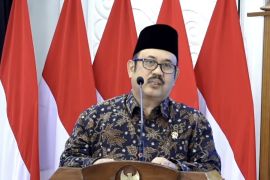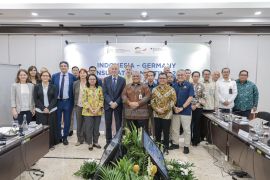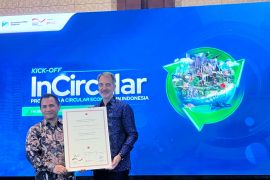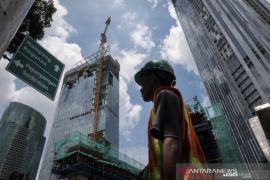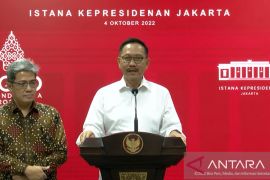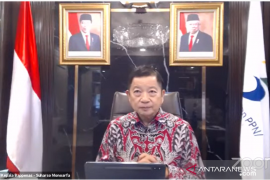"The efforts are intended to make Indonesia a developed and prosperous nation," Bambang Brodjonegoro stated at the Indonesian Diaspora Global Summit 2017 here on Monday.
Through innovation, research and development, as well as entrepreneurship, the Indonesian diaspora can improve the countrys economy.
"Entrepreneurship is expected to bring foreign investment into Indonesia," he noted.
Indonesia is currently categorized as a lower middle-income nation, and between 2009 and 2013, the nation had registered an annual gross domestic product (GDP) growth of 5.8 percent.
If Indonesia maintains its economic growth at 6.5 percent, the country can avoid the middle-income trap and join the ranks of high-income countries by 2030.
The middle-income trap refers to a situation in which a country suffers an economic slowdown after achieving a middle-income status and is unsuccessful in attaining a higher-income level.
"South Korea was able to move from a middle-income status to attain a high-income status," he pointed out.
South Korea is able to innovate and has superior manufacturing capabilities.
"South Korea also relies on industries, such as Samsung. Hence, industry, innovation, and entrepreneurship are the key (to growth)," he stated.
Finance Minister Sri Mulyani Indrawati had earlier remarked that the countrys economic growth target of 5.4 percent set in the 2018 draft state budget was quite optimistic.
"In my opinion, it is quite optimistic but not too ambitious," Mulyani said after attending a news conference on the financial note and draft law on the 2018 state budget.
The government proposed a state budget deficit for 2018 in the parliament on Wednesday, with an income target of Rp1,878.4 trillion and spending target of Rp2,204.4 trillion.
The minister pointed out that the target can be reached by boosting household consumption, which is expected to grow at five percent in 2018.
In addition, economic growth is expected to receive support from the investment sector, which is forecast to grow more than six percent and exports are forecast to grow at five percent.
Mulyani said the two sectors will serve as strong drivers for economic growth in 2018, as the government will reduce the state budget burden to boost development.
It is indicated by the budget deficit, which is set at 2.19 percent of the countrys GDP for 2018, lower than the deficit of 2.67 percent estimated for 2017.
Growth reflects greater optimism, with better support from factors outside the state budget, such as investment and exports, she said.
The government has set the countrys economic growth target at 5.4 percent for 2018, with growth drivers, including household consumption, investment, exports, and imports.
Household consumption and exports are forecast to each grow at 5.1 percent. Government consumption is also expected to grow by 3.8 percent; gross fixed capital formation, 6.3 percent; and imports, 4.5 percent.
Other macroeconomic indicators include inflation forecast at 3.5 percent, the value of the rupiah at Rp13,500 per US dollar, interest rate on three-month state treasury securities at 5.3 percent, average price of Indonesian crude oil at US$48 per barrel, oil lifting at 800 thousand barrels per day, and gas lifting at 1.2 million barrels of oil equivalent per day.(*)
Editor: Heru Purwanto
Copyright © ANTARA 2017
